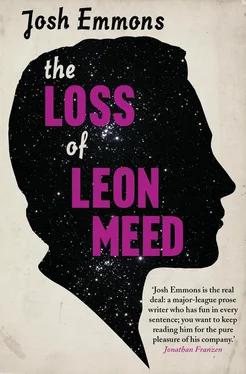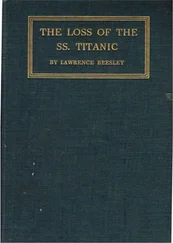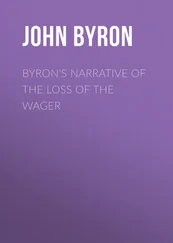The next morning Joon-sup Kim called his friend Hyun-bae for their once-a-month California comparison, a Eureka versus San Diego debate. They had immigrated together to the Golden State from Pusan, South Korea, six years earlier when they were seventeen. Joon-sup, nicknamed Jack by his coworkers at the Better Bagel and only slightly shorter than the average American, with matted hair that hung like coils of moss down his back, lived in a Eureka tenement building occupied primarily by Laotians and Salvadorans who seemed all to have taken a vow of silence. He would step onto the lanai outside his second-story apartment and wave down at a freakishly over-groomed Latino family sitting in the courtyard around a murky half-drained swimming pool, eating papusas, Sunday best on a Tuesday afternoon. Not receiving a wave back, he’d follow up with a hale “Nice day for a picnic, know what I’m saying?” though it might be fifty-two degrees and overcast. One by one—man woman teenage boy little girl—they’d look up at him, never all together, and say nothing before pulling out more papusas from their Longaberger. “Weirdos,” Joon-sup would mutter under his breath and then go back inside his dungeony bachelor pad.
He’d originally moved with Hyun-bae to southern California and then gone north after a vacation had convinced him that Eureka was where he was meant to be. There were trees and a temperate climate and the ease of mobility that only smaller cities offer. The smog was bearable. The people friendly. Plus, Joon-sup was something of a chef and would-be small businessman and had happily noted Eureka’s dearth of Korean restaurants. Which, he discovered upon arriving there and getting a job as an assistant bagel maker and learning more about the area’s cultural and ethnic components, was because there was a dearth of Koreans. Laotians, Vietnamese, and Cambodians, sure, plenty, enough not to render the phrase “northern California Asian population” completely nonsensical, but there was almost no one from his home country.
Hyun-bae liked to lord this over him—that Joon-sup was an island in a sea of round-eyes and boat people—but Joon-sup liked being unique, even if most whites eventually got around to asking him what he thought of Ho Chi Minh and My Lai, and he felt that this was a place where he would become American quicker than if there were a Korean community to fall back on. Here he had no choice but to go to all-night reggae jams and to bonfire parties at Moonstone Beach with the local university kids high on Native American herbs and the urgency of their environmental science major. Here he threw away the preppy stiff-collared shirts he’d bought in San Diego and adopted the local garb: alpaca tube hat, cotton-hemp hybrid long-sleeved pullovers, draw-string calico pants with neo-bell-bottom stylability, hefty mountain-climbing boots with graphite support system. Joon-sup went native.
His parents were disturbed by the pictures of himself he sent home, and by his increasingly foreign intonations when talking to them on the phone, for in his daily life the Korean language had become like a trophy sword kept over the mantel, an unused adornment. He had sex with American girls and seemed so at home in Humboldt that people from out of town pulled over while driving to ask him directions. Once when his van broke down he hitched a ride to a mechanic with a schoolteacher named Elaine who didn’t know the first thing about efforts to strengthen the Environmental Protection Agency’s jurisdiction over the local logging industry, and when he informed her of them she was impressed and asked if he’d grown up in Eureka, which was a flattering question. He didn’t plan ever to visit South Korea again. He was free.
At just after two in the afternoon Joon-sup finished reading thirty-four small-font pages of a loan application for the restaurant he wanted to open, the Joon-sup Experience. His head hurt and he had to go to a rally in Arcata for the Pacific black brant and other migratory waterfowl that annually made a stop in the shoals of Humboldt Bay, so he put down the hefty application and got in his turtle-green Volkswagen bus and put on a music collection of stoned hippie reggae standards about Marcus Garvey and sensimilla and the scandal of the Banana Republics. Lighting a sausage-sized joint, he backed out of his numbered parking space in front of his apartment, running bump over something that turned out to be a deflated football left out by one of the building kids. The joint smoldered as he came to a stop sign and his mother had called in the morning because she had met someone she wanted him to consider. Yes, she knew he was in America now and had adopted certain regrettable American customs and had once said, in a breach of filial respect so extreme it had left her speechless, that he would marry whomever he wanted, be she white, Asian, African, or transvestite, but she had met the most remarkable girl with a university degree and knew Joon-sup couldn’t refuse to just look at this girl’s picture and read her handwritten note about herself. He couldn’t possibly be so insensitive. The package was on its way.
There was a trippy knocking sound in this dance-hall song, like an echoing submarine sonar noise, that was spacier for the subwoofer and thousand-dollar equalizer Joon-sup had recently installed in his van. He frowned at a red light on his dashboard that flickered on and off, thought he recognized the burrito maker standing outside Amigas Burrito, accelerated and worried about his lack of loan collateral, cursed his Asian hair for being so difficult to dreadlock, and figured that the picture of his “intended” would look nothing like she did in real life, that it would be doctored into the realm of fantasy. One of his old school friends worked in a photography studio in Pusan where ninety percent of the customers were women insisting that the studio airbrush to the extent of reconfiguring noses and lightening skin colors and trimming neck widths. Marriage was such a desperate business in South Korea, and what was Joon-sup supposed to do, see the picture and flip and—
Joon-sup snapped to attention. A man was standing in the middle of the road on the outskirts of Eureka, directly in front of Joon-sup’s van traveling at 42 mph. The guy was maybe three seconds away, meaning that Joon-sup couldn’t possibly stop in time, though he slammed on the brakes reflexively as a low scream got stuck in his throat. The man had appeared from out of nowhere, with his legs spread apart like he was about to draw in a shootout. Joon-sup thought, in a spasm of fear, Holy fuck I am going to hit this guy and braced himself for the impact, tensed and skidding and seeing everything in slow motion. His white knuckles on his enormous steering wheel, involuntarily closing his eyes and—
Nothing happened. No kerchunk and smashed metal and street-smeared pedestrian. Joon-sup was merely slowing to a stop just past Kinko’s and a shoe store and a veterinary clinic, beyond the place in the road where the man had stood. Cars honked as they swerved around his parked van. Joon-sup craned his neck in every direction and then looked at the reefer in his hand. He’d had a hallucination. With his Gatling-gun heart going rat-a-tat-tat, Joon-sup shifted into gear and sped up onto the highway. He had to be cool, be cool. Cars continued to gust by and a highway patrol vehicle got a good look at him. Feeling the police stare, Joon-sup looked straight ahead and finally reached the speed limit and tried to seem unconcerned with the fact that he was holding a marijuana cigarette in plain view. It was only a cigar and Joon-sup was just a conscientious driver. But normal people looked around when they drove, so he made some natural-seeming head turns and saw the face of the highway patrolwoman, a Laotian in a flat-topped police hat. He smiled and made a little bow with his chin. She slitted her eyes and moved on.
Читать дальше












